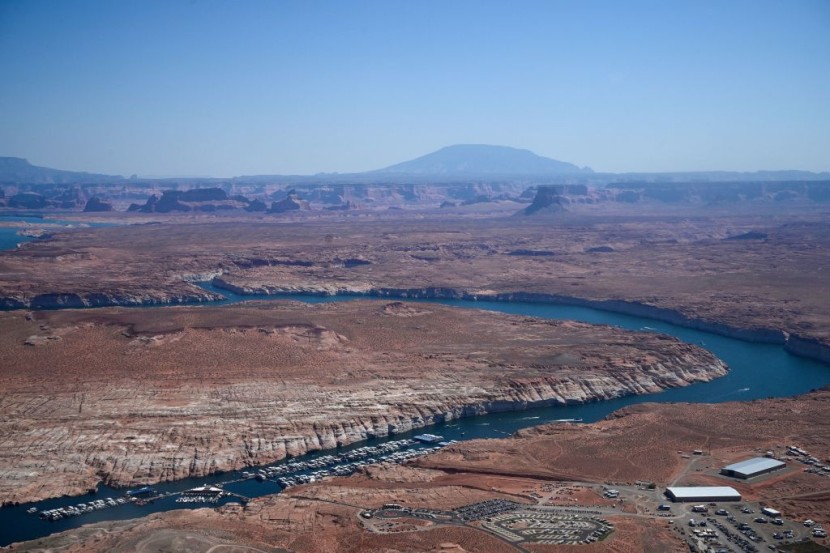
- Three states have agreed on a plan to reduce water usage in an attempt to prevent the Colorado River from drying up
- Seven states rely on the Colorado River for power and drinking water
- The three states involved in the deal plan to conserve at least 3 million acre-feet of water by 2026
Three states have agreed to reduce water usage to prevent the Colorado River from drying up as seven states continue to rely on the source for power and drinking water.
The three regions have agreed on a deal that seeks to conserve at least 3 million acre-feet of water by 2026, roughly equivalent to the amount needed to fill 6 million Olympic-sized swimming pools.
States Agree To Reduce Water Usage From Colorado River
The states involved in the plan are Arizona, California, and Nevada, supported by the Joe Biden administration, which brokered the deal. As per NBC News, the three states announced the consensus deal on Monday in a news release.
The deal was made as the seven states that rely on the Colorado River were already on the brink of a crisis after decades of overuse of the source. Officials grew concerned before a banner winter of snowfall. This was due to dams at Lake Mead and Lake Powell near "dead pool" status.
This status is given when the flow is cut off to lower regions of the Colorado River because water levels drop too low to allow them to pass through the dams. The situation comes as roughly 40 million people rely on the Colorado River for drinking water.
On the other hand, utilities depend on the Colorado River to generate electricity at dams on Lake Mead and Lake Powell and keep power flowing in various states across the country. The new deal could prevent the near-term crisis and allow states to conduct sustainable water use.
Potentially Catastrophic Effects
However, the agreement requires less conservation than some scientists have argued is required to stabilize the river after more than a two-decade drought. The agreement also seeks to prevent a political predicament for the Biden administration. It would have been forced to implement cuts unilaterally if the states could not negotiate a deal.
Cities, irrigation districts, and Native American tribes in the three states will be paid in exchange for temporarily using less water. Also, the federal government is setting aside $1.2 billion to address the issue, said a spokesperson to US Sen. Catherine Cortez Masto, Lauren Wodarski, according to the Associated Press.
The research director at the Kyle Center for Water Policy at Arizona State University, Kathryn Sorensen, said that the deal was agreed on because much of the West saw record snow last winter.
Sorensen added that the snowpack bought the luxury of bringing forward a deal that was not as good as the federal government was hoping for but is still able to buy authorities some time to address the issue properly, said NPR.
© 2026 HNGN, All rights reserved. Do not reproduce without permission.








